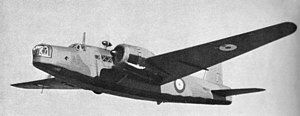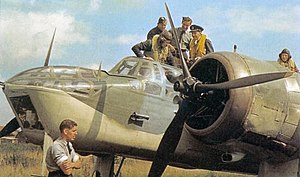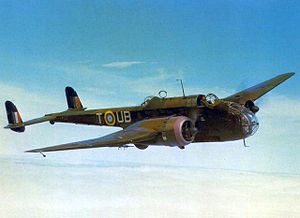
Posted on 07/12/2009 5:12:59 AM PDT by Homer_J_Simpson



Nothing could be learned of their tenor, but by now these negotiations – with their claims and counter-claims, interpretations and reinterpretations and constructions and counter-constructions – have become so complicated that most of the day was spent trying to figure out just what the latest Russian reply was.
That Molotov is a great practical joker.
Also on this post: “Britain is Warned by Nazis on Flight.” Or, “Goering is not Amused.”
He should have been; once the war started, Bomber Command couldn't carry out daylight raids without prohibitive losses. And at night, RAF navigation was so bad that as late as 1942, a raid where twenty percent of the bombs fell within six miles of the target was called 'successful'.
I doubt the Brits today would have 100 planes to fly over France.
He flatly states that this German response is more saber rattling and calls them for what they are. Pretty tough words there with this statement:
"We have heard these siren voices before from the mouths of international war-mongers and we know that they are only cheap phrases meant to disguise their true intentions from the German people. We are not going to be fooled again."
I think he makes a good and valid point that the words by the Nazi's were just as much intended to impress the German people as much as it was to send a message to France and Britain.
Wellington medium bomber:

Bristol Blenheim light bomber:

Fairey Battle light bomber:

Handley Page Hamden medium bomber:

The article describes these as the "heavy bombers," and does not seperately name those it called "medium bombers." Needless to say, "heavy" bombers in 1939 were no longer considered "heavy" by 1945. Indeed, the two engine Blenheim today is called a "light bomber".
Turns out, expectations in 1939 as to just what bombers could accomplish proved quite unrealistic. As late as 1942, most bombs didn't land within miles of their targets. And, more British airmen died on bombing missions than the Germans they were trying to bomb.
But as it came to pass, the air war was important in making the population pay a price. We dont want to do that ever today and as such the mopping up after a battle is more untidy than then.
Actally both the Blenheim and Battle were considered "light bombers" (c. 1000lb bombload) in 1939.
The Hampden and Wellington were "mediums" (c. 4,000lb)
The 1939 "heavy" with 7,000lb load was the Whitley 
What you have here is journalistic accuracy. (little changes over the years)
Bro, do you have a source for that. I'd have to imagine that you'd kill more Germans just when the plane his the ground. That's real interesting.
Well, that took more looking than I expected. Would have sworn it was in:
Robin Neillands "The Bomber War"

And it may be, though I couldn't find it there.
Lately have seen it mentioned on one of those History Channel shows, but know I first read it somewhere years ago, but where....?
Ah, here it is:
Frederick Taylor, Dresden, page 117
"In 1940 the Germans had a very underdeveloped air defense, with only forty defensive fighters at its disposal. By the late summer of 1941 the system had been dramatically augmented, especially around key areas such as the Ruhr. In the first eighteen nights of August 1941, some 107 British aircraft were lost; in September, a total of 138 (62 crashed inside England); and in October 108. A shocking 12.5 percent of those sent to Berlin, 13 percent of those sent to Mannheim, and 21 percent of those bombing the Ruhr did not come home.
"Added to these figures was the implication, from the Butt report, that these raids were not just costly in money, men and aircraft, but near enough futile. They just weren't hitting much. On November 13, 1941, Bomber Command was ordered to halt long-range operations. This was, for the moment, as serious admission of failure.
"However, with no progress on any land front, and the public still shocked and embittered by the effects of the Blitz, there was no question that, in the longer term, bombing Germany -- "hitting back" -- remained a key component in the machinery of morale maintenance.
"As a result, whatever the concern felt in government circles about the effectiveness of Bomber Command's raids, this was not the message put out by the Ministry of Information. Newsreels and skillfully made documentary films such as Target for Tonight (released in August 1941) had served to convince most British civilians, and many Americans also, that the RAF was doing an excellent job over Germany.
"They did not know that so far more RAF aircrew had been lost over Germany than enemy civilians killed on the ground."
British area bombing resumed on March 28, 1942.
What? No way! Not in the New York Times. I just can't believe that... ;-)
Bombing was a dangerous business.
A British Lancaster bomber is silhouetted against fl ares and explosions during the attack on Hamburg, Germany, on the night of January 30, 1943. - Technology Review; Nov2006.
Disclaimer: Opinions posted on Free Republic are those of the individual posters and do not necessarily represent the opinion of Free Republic or its management. All materials posted herein are protected by copyright law and the exemption for fair use of copyrighted works.